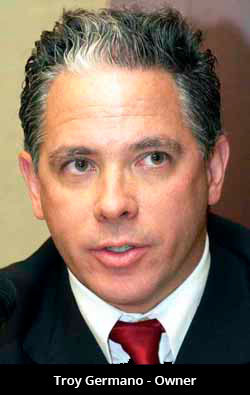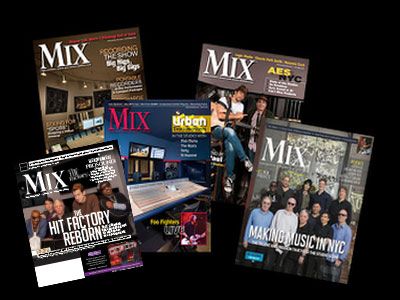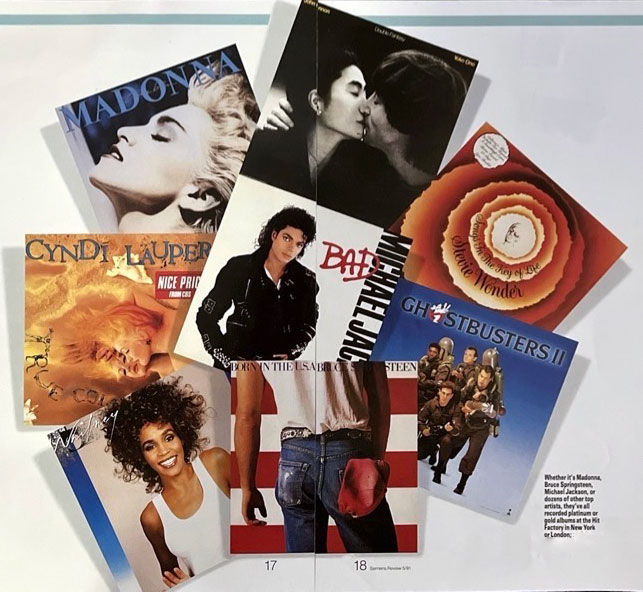Troy’s career in the music industry began in 1975, when he joined his father, Ed Germano, at The Hit Factory’s West 48th Street location in New York City. He experienced the business from the ground up, starting in the tape library and eventually becoming Executive Vice President in 1984. The seminal recordings from these studios were Steve Wonder’s album, “Songs In The Key Of Life” and John Lennon’s “Double Fantasy.”
The studio moved in 1981 from its longtime location on West 48th Street to Broadway and 54th Street, the former home to Bell Sound. These studios were known as The Hit Factory Broadway. The histroric recordings from this location were Paul Simon’s “Graceland” and Bruce Springsteen and the E Street Band’s album “Born In The USA.”
The studios added another location, The Hit Factory Times Square, on West 42nd Street in 1987. These studios are where Hip Hop became part of the mainstream clientele. The major recordings done here were Billy Joel’s “Storm Front” and Neil Young’s “Freedom” album.
The Hit Factory expanded to England in 1989 through a joint venture with Sony’s CBS Records U.K., at the site of their famed CBS Studios. The Hit Factory London operated with great success through 1993. The major recordings from these studios were Sade’s album “Love Deluxe” and The Rolling Stones’ “Flashpoint.”
In early 1993, Troy designed and built the state-of-the-art rooms that would become the hallmark of The Hit Factory’s new headquarters, located on West 54th Street and Tenth Avenue, The Hit Factory Headquarters. Well known albums recorded at this location include Michael Jackson’s “HIStory: Past, Present and Future, Book 1” double album and The Notorious B.I.G.’s album “Ready To Die.”
In 1999, the Germanos expanded their recording facilities yet again, purchasing the historic Criteria Recording Studios in Miami. These studios were known as The Hit Factory Miami. Seminal albums recorded here were Michael Jackson’s “Invincible” and Lil Wayne’s “Tha Carter III.”
He assumed the Chief Executive Officer position in 2000 during the early stages of the Criteria Miami project. In 2001, Troy completed the design and re-construction of the Miami facility. By 2002, the number of music studios under his supervision had grown to sixteen recording/mixing rooms, six mastering suites and six writing rooms between New York and Florida.
The 2003 TEC Award for Studio Design was awarded to him for New York’s new Studio 6.



